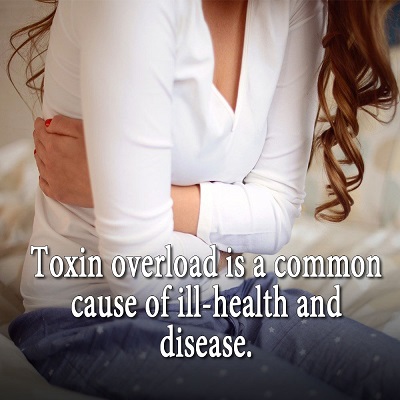 Do you know what some historians say ‘led’ to the demise of the Roman Empire? They say it wasn’t war or famine, but something seemingly less sinister – it was the water from their pipes. A toxin, specifically lead, was in the water.
Do you know what some historians say ‘led’ to the demise of the Roman Empire? They say it wasn’t war or famine, but something seemingly less sinister – it was the water from their pipes. A toxin, specifically lead, was in the water.
While we no longer live in ancient times, toxins are still very much present in our surroundings today, even more so in our technology-driven and the often artificial modern world. Most of us know there are toxins around us and that we can detox our bodies for health, but do we all really understand what toxins do to our bodies?
Toxins are chemical compounds that can cause significant damage to the body when absorbed. These toxins can either be synthetically produced or can be naturally produced by various living organisms. It was often believed that a toxic overload was caused only by a person’s occupation, such as coal miners who are constantly exposed to coal dust. However, due to our increasingly industrial world, almost everyone is now at risk of being overexposed to toxins.
Effects of Toxin Overload on the Body
There are different ways our bodies can react to toxins. High levels of toxins are known to cause adverse effects on the body, but chronic exposure to low levels can also lead to ill side effects. Our bodies become overloaded with toxins when we are persistently exposed to them, even at low levels.
Understanding Toxic Inflammatory Burden
When we are constantly exposed to toxins, our bodies absorb and accumulate these toxins. The body has ways of flushing out toxins, including our natural resource of anti-oxidants. However, when there is a toxin overload, the body can no longer effectively remove the toxins in the system, causing a toxic inflammatory burden that leads to different adverse side effects over time.
The following are some of the ways toxins affect the body:
Weakens the Immune System
One of the most significant and impacting effects of toxin overload is its ability to weaken our immune system. A weak immune system makes us more vulnerable to diseases and infections. Toxin overload can cause low-grade inflammation, which disrupts our immune system.
There are environmental toxins that affect the function of the thymus, which houses mature immune cells. If the thymus shrinks due to toxin exposure, it impairs the ability of the cells to determine which bacteria are dangerous or not, which increases our risk of contracting infection and disease.
Damaged Organs
Our organs are responsible for different physiological functions of the body. Toxin overload weakens many of our organs, with the kidneys and liver being the most vulnerable to toxins. Organ damage can range from irritation, asthma, and jaundice to more severe illnesses such as leukemia and other types of cancer.
Weaker Bones
Toxin overload can affect bone mass. Toxins can displace calcium in our bones, which then significantly weakens our skeletal structure. Additionally, bone loss also produces toxins that circulate throughout our body, increasing our toxin exposure.
Speeds Aging
Toxin overload leads to the oxidation of cells in the body. This oxidation process inevitably damages cells and increases the rate of aging, making us look older and being more prone to different degenerative diseases.
Causes Hormonal Imbalance
Toxins also affect how our hormones work. These harmful chemicals have the ability to induce, inhibit, mimic, and block hormones, interfering with several different physiological processes along the way. One good example is arsenic, a chemical compound commonly found in soil, sediments, and groundwater. Arsenic can disrupt our thyroid hormone receptors, leading to an increased metabolism rate, which then causes chronic fatigue.
Damage Cell Membranes
Cell membranes send signals to the different organs and parts of the body. Toxins can damage our cell membranes which then affects our body’s ability to respond to these signals. Toxins that damage the cell membranes can lead to various illnesses. For example, insulin may not be able to send alerts to the cells, causing cells not to absorb blood sugar. The result is a persistently high level of blood glucose which often leads to diabetes.
Many of us may feel that we are not exposed to harmful toxins. However, everyday activities and even some of the food we eat can increase our toxin exposure. Toxins can be a real threat to our health if not taken seriously – a lesson the ancient Romans learned the hard way.






